
Top Energy/Automotive News As Reported, to Friday, 31st March, 2023
London, 31 March, 2023, (Oilandgaspress): In the US, Republican sponsored energy bill passed the House on Thursday. It seeks to promote oil and gas production in the United States, as well as repeal parts of Biden’s Inflation Reduction Act. H.R. 1 passed the House by a 225-204, according to Bloomberg. Senate Majority Leader Chuck Schumer referred to the H.R. 1 as dead on arrival. The Bill could also get vetoed by the President.
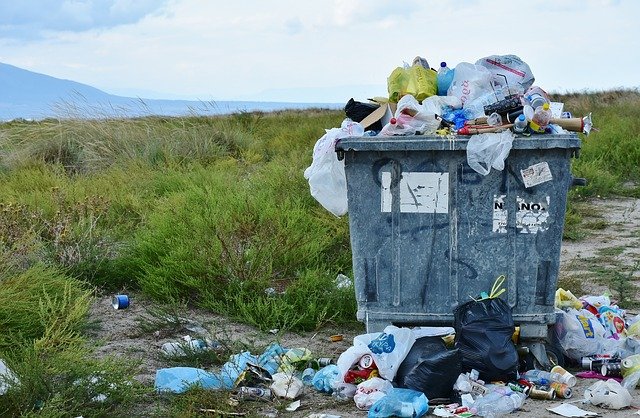
Neste has successfully concluded its second series of industrial-scale processing runs with liquefied waste plastic at its refinery in Porvoo, Finland. The goal of the processing runs is to further increase the company’s understanding of how different types of waste plastics behave during chemical recycling in the refinery processes. The end product gained in the runs – Neste RE™, a drop-in feedstock for petrochemicals – is turned into new plastics by Neste’s partners.
While Neste is establishing large-scale capacities to process liquefied waste plastic at its Porvoo site, the current processing runs utilize existing refinery equipment built for crude oil refining.
Successful conclusion of second series of waste plastic processing runs
Since Neste’s first processing run in 2020, the company has concluded a total of six successful runs, processing close to 3,000 tons of liquefied waste plastic in total. After processing 800 tons in the first series completed in 2022, the company has been able to more than triple that amount to date. The processing runs are a part of Neste’s strategy to advance chemical recycling and contribute to a circular polymers economy.
“We are walking the talk on chemical recycling,” says Heikki Färkkilä, Vice President Chemical Recycling at Neste. “Our processing runs provide us not only with valuable knowledge on the technologies, but also serve as a proof of concept: chemical recycling can be done on an industrial scale. Our focus continues to be getting from individual processing runs to continuous operation.”
Neste processed so called “hard-to-recycle” waste plastic which would have ended up in incineration or landfill had it not been directed to chemical recycling. This highlights how chemical recycling complements existing mechanical recycling technologies.
The liquefied waste plastic for the runs has been sourced from multiple suppliers that are part of a supply network Neste has continuously expanded. Among others, the suppliers include US-based Alterra Energy, in which Neste holds a minority stake, as well as Finland-based Wastewise, with which Neste recently cooperated to chemically recycle cross-linked polyethylene (PEX) waste from pipe production into new PEX pipes. Read More

Africa Oil Corp. announce that it has published its 2022 Sustainability Report. This report outlines the Company’s approach to ESG management and provides an overview of the ESG-related performance for the period 1st January to 31st December 2022.
Highlights
• Net equity emissions of 117 kilo tonnes carbon dioxide equivalent (“ktCO2e”) during 2022, representing an 8% decrease compared to 2021.
• Gas flaring at the Company’s Nigerian assets reduced 27% year-over-year.
• More than 20% of emissions offset via purchase of Verra certified carbon credits on road to achieving carbon neutrality in 2025.
• Zero fatalities and Lost Time Injuries in Nigeria.
• Adopted new Diversity, Equity and Inclusion policy, including aspirational diversity targets at the Board and Management level.
• Continue to expand ESG disclosures, with Taskforce on Nature-related Financial Disclosures (“TNFD”) pilot and addition of Global Reporting Initiative (“GRI”).
Africa Oil Chief Executive Officer, Keith Hill, commented: “To meet our goal of carbon neutrality by 2025, we have actively advocated through our interest in Prime for emissions reduction opportunities at our assets in Nigeria, with a particular focus on flaring and asset optimization. I am delighted these efforts contributed to a 27% year-over-year decrease in flaring in 2022 and contributed to an 8% reduction in overall emissions. Flaring is now half the rate it was in 2019, before we acquired the assets, and we continue to see improvements, with average flaring levels year-to-date in 2023 roughly a third of those in 2022.
We have also continued to strengthen our approach to social and governance matters internally, including the introduction of a new Diversity, Equity and Inclusion Policy, which enshrines our commitment to promoting diversity across the organization. I am also pleased to report that Africa Oil renewed its membership in the Extractive Industries Transparency Initiative (“EITI”) and the United Nations Global Compact. As such, I am pleased to reaffirm our support for the EITI Principles and the Ten Principles of the UNGC in the areas of Human Rights, Labour, Environment and Anti-Corruption.” Read More
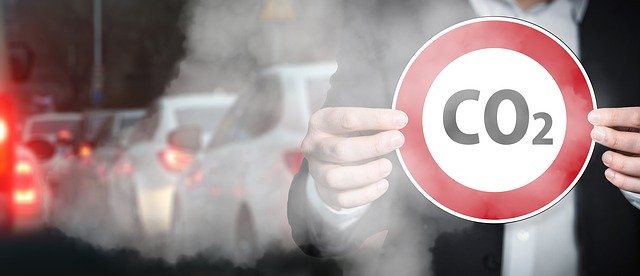
Osaka Gas Co., Ltd. (Osaka Gas) and Mitsubishi Heavy Industries, Ltd. (MHI) have entered into an agreement to conduct a feasibility study on a project to develop a CO2 value chain for CCUS (Carbon Capture, Utilization, and Storage), including transporting CO2 captured in Japan to overseas, utilizing it to produce e-methane, synthetic gas produced through methanation, and storing it underground.
The project aims to establish an efficient CO2 value chain, leveraging Osaka Gas’s know-how on e-methane production and CO2 storage and MHI’s expertise in CO2 capture, liquefied CO2 maritime vessel transport, and CO2 management. To that end, the project partners will examine methods to capture CO2 emitted from the Hard-to-Abate industries, such as steel, cement, and chemicals, and transport liquefied CO2 using ships. Osaka Gas and MHI will conduct a feasibility study on the entire CCUS scheme, including CO2 utilization for e-methane and underground sequestration, in corporation with companies from a wide variety of industries.
The project also plans to expand its CCUS scheme through the trade and transfer of CCUS’s environmental value quantified by CO2NNEX, a digital platform under development by MHI and IBM Japan for visualizing CO2 value chain. Through this project, Osaka Gas and MHI aim to contribute to achieving a carbon neutral society by 2050, combining the two companies’ technologies developed to meet their respective goals for net zero emissions. Read More
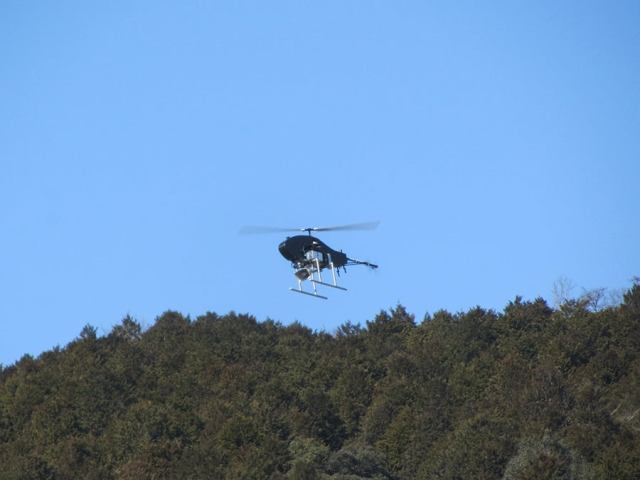
Mitsubishi Heavy Industries, Ltd. (MHI), in collaboration with Chubu Electric Power Co., Inc. (Chubu Electric), has conducted a demonstration test of “Smart Industrial Safety,” a system that performs on-site confirmation by drone. The test, carried out in Toyota City, Aichi Prefecture, confirmed the effectiveness of security operations performed by a drone currently under development by MHI.
The Hydro Power Business Department of Chubu Electric’s Renewable Energy Company is currently challenged by a manpower shortage and the need to secure the safety of its employees who perform on-site confirmation at dams and power stations located in mountainous regions that are difficult to access, requiring travel over narrow roads by motor vehicle or on foot. The drone demonstration test was conducted to resolve these challenges and simultaneously achieve greater work efficiency at reduced cost. The drone used in the testing was a single rotor UAV under development in MHI’s Commercial Aviation Systems segment. Flying at an altitude of 35-50m at speeds of 10-20kph, the drone’s onboard camera confirmed the site conditions and human presences, and its speaker confirmed sound transmission. Following confirmation of the drone’s effectiveness in performing security operations, MHI and Chubu Electric will continue to collaborate toward achieving safe, autonomous flying capability over longer distances to even more remote locations. Going forward, MHI will apply its outstanding expertise in safety, quality assurance and certification acquisition, accumulated through production of major components of commercial aircraft, to the resolution of diverse challenges through use of drones. Read More
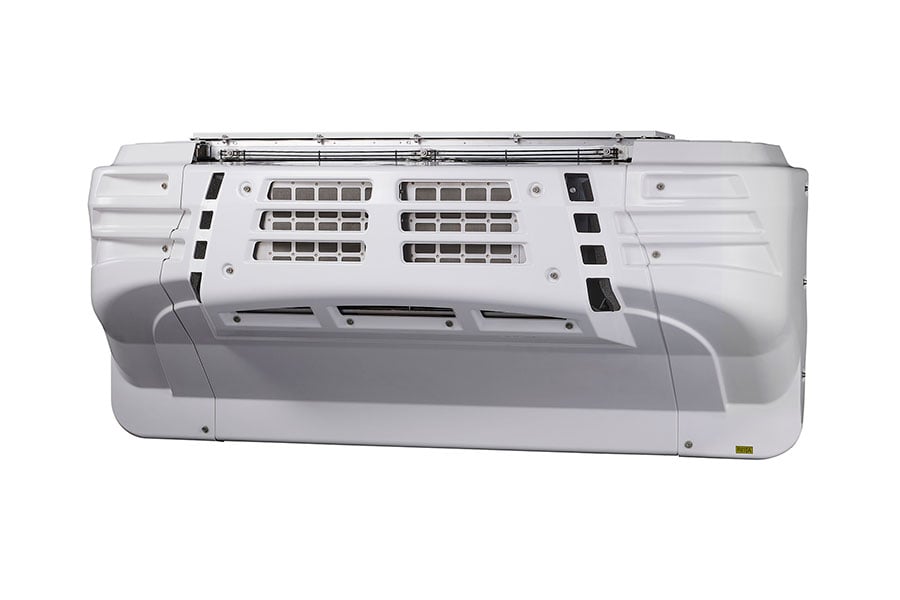
Mitsubishi Heavy Industries Thermal Systems, Ltd. (MHI Thermal Systems), a part of Mitsubishi Heavy Industries (MHI) Group, has developed a new electric-driven transport refrigeration unit exclusively for electric vehicles (EVs), the TEJ35AM, which is equipped with a heat-pump heating function. Sales of the new unit will be launched for use in production model EV trucks made by domestic automakers. In contrast to conventional systems in which the transport refrigeration unit is powered by the vehicle’s engine or a dedicated refrigerator engine, the TEJ35AM features an electric drive system that enables operation driven by electric power from the EV alone.
The adoption of heat-pump heating, in which ambient heat is used for the heating operation, enables the TEJ35AM to perform heating and cooling operations simultaneously. With this dual capability, the heating mode prevents cargo freezing when the outside temperature is low, and the cooling mode prevents food and other cargo from deteriorating in quality when the outside temperature is high. The unit also features a multi-system that enables multiple temperature settings appropriate to the specific cargo volume or type. This enables the TEJ35AM to accommodate diverse transport modes, including simultaneous transport of products requiring multiple temperatures, to meet the needs of convenience stores and the like. Furthermore, because the refrigeration unit can be operated under all vehicle operating conditions – when running, stopped or charging – the temperature inside the cargo room can be kept stable at all times, ensuring safe transport of food items.
The TEJ35AM saves energy through the adoption of a high-efficiency heat-pump system which not only cuts energy consumption but also reduces carbon emissions, and in this way it responds to the needs of automakers undertaking development of EV trucks as a contribution to the quest for a carbon neutral society. Going forward, availing of the ability to combine the unit with various power supplies, the TEJ35AM will be promoted for installation in EV trucks, whose proliferation is one target of the Government’s “Green Growth Strategy.” Read More
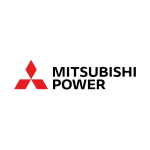
Mitsubishi Power, a power solutions brand of Mitsubishi Heavy Industries, Ltd. (MHI), has begun providing ENEOS Corporation with an energy balance optimization service to realize efficient utilization of hydrogen in the petroleum refining process. As part of a demonstration experiment conducted at the ENEOS Corporation Sakai Refinery in Osaka, where the service was first implemented, MHI introduced the cloud platform of its TOMONI®(Note1) suite of intelligent solutions incorporating ENERGY CLOUD®(Note2), an analysis engine that uses proprietary AI and IoT technologies(Note3) for forecasting and optimization. This experiment confirmed positive results for regulating the production and consumption volume of hydrogen used in the desulfurization stage of oil refining, as well as efficient utilization of the by-product hydrogen obtained in the subsequent refining process. Based on this result, MHI began providing this solution to ENEOS from February 2023.
During the process of refining kerosene, gasoline, and other petroleum products from crude oil, desulfurization using hydrogen is conducted to remove the sulfur present in crude oil. Due to the nature of crude oil, the amount of hydrogen needed for desulfurization varies according to the region where the oil was produced, affecting the performance of the treatment facilities. Accordingly, refineries require sophisticated refining operations, including regulating the production volume of the hydrogen utilizing unused source gas (off-gas), an operation that typically requires the judgement of skilled staff. The application of TOMONI, which has been trained on service usage data, lowers costs, while at the same time ensures the continuation of this advanced operational technology. In addition, this AI technology can also be applied for the utilization of by-product hydrogen obtained during this oil manufacturing process, with the AI system determining the volume recirculated to the hydrogen production equipment after desulfurization. Read More
BW Offshore has entered into a Total Return Swap (“TRS”) agreement with financial exposure to 353 425 shares in BW Energy Limited (“BWE”). The TRS agreement relates to BW Offshore’s Long-Term Incentive Programme (LTIP) adopted in 2019. Expiry date for the TRS agreement is 5 April 2024, and the TRS price is NOK 27.92 per share. Read More
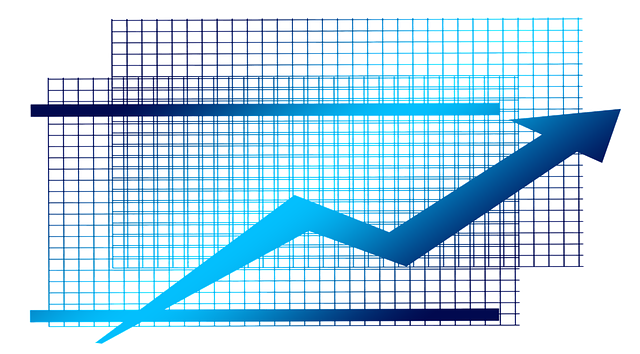
PT Wintermar Offshore Marine Tbk (WINS:JK) recorded FY2022 gross profit of US$11.2 million, an 88% YOY growth, on the back of rising utilization and charter rates, and a 510%YOY jump in net profit to US$1.1 million. Higher utilization and rising charter rates contributed to a strong operational performance in FY2022 with EBITDA up 28% to US$17.5 million on total revenue of US$61 million (+44%YOY).
Owned Vessel Division
Offshore upstream activity picked up steadily over the course of FY2022 amidst a sustained rise in oil prices and continued tensions in Ukraine. Demand for OSVs, in particular in the higher value vessels, was stronger towards the second half of FY2022, and utilization of Wintermar’s fleet reached 83% in 4Q2022 compared to 61% in 1Q2022.
In 2022, the Company purchased 6 units of mid to high tier vessels, of which 3 units have commenced operations. Including the 2 units of Platform Supply Vessels (PSV) purchased in December 2021, Wintermar has added a total of 8 vessels to the fleet in the past 18months. At the end of December 2022, there were 4 vessels still undergoing reactivation, comprising 2 units of Platform Supply Vessels and 2units of 7000BHP AHTS. These vessels are expected to start operations in 2Q to 2H2023.
Revenue for the Owned Vessel Division grew by 9% YOY to US$ 36.1 million while direct costs for the division only grew by 4% for the same period. Operations and maintenance costs were higher in 2022 as more vessels were prepared for new contracts, and fuel was higher by 88% due to the mobilization and demobilization of vessels working outside Indonesia. Depreciation charges fell 7%YOY to US$12.1 million resulting from changes in fleet composition. The management repositioned the fleet into higher yielding vessels by selling older vessels and purchasing second hand but higher value vessels at lower prices during the past year to improve the average blended charter rate. One older vessel was sold in 2022, albeit at a book loss of US$ 2.6 million, but the reinvestment of the proceeds resulted in an improved return on assets. Crewing costs of US$ 8.8 million were 3% lower YOY as COVID-19 restrictions were lifted in 2022, negating the requirement for quarantines and PCR testing which had inflated crewing costs in the previous two years. Read More
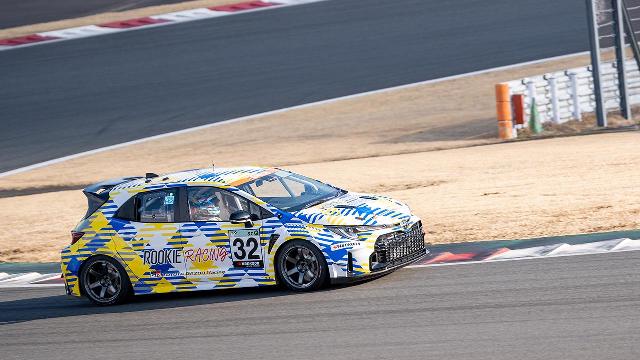
Toyota has five levels of test vehicle driving qualifications: Beginner, Intermediate, Advanced, S1, and S2. The training is not simply about driving skills but also the psychological side, emphasizing the ability to maintain a calm mental state when testing cars.
S1 drivers above the Advanced level even have lap-time targets. Drivers are also entrusted with judging safety and may abandon a test run if they deem a development vehicle to be in an unsafe condition.
Test drivers who possess these abilities at the highest level receive S2 certification.The skills required of an S2 driver include the ability to quickly push a car to its limits, even when driving a particular course or vehicle for the first time, and to consistently clock runs with less than 1 second variation from the given lap time. They must also be able to safely decelerate after hitting speeds of 250km/h. Read More
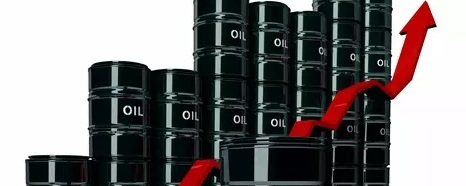
| Oil and Gas Blends | Units | Oil Price $ | change |
| Crude Oil (WTI) | USD/bbl | $74.67 | Up |
| Crude Oil (Brent) | USD/bbl | $79.25 | Up |
| Bonny Light | USD/bbl | $78.60 | Up |
| Saharan Blend | USD/bbl | $77.97 | Up |
| Natural Gas | USD/MMBtu | $2.12 | Up |
| OPEC basket 30/03/23 | USD/bbl | $77.53 | Down |
At press time 31 March 2023

OilandGasPress Energy Newsbites and Analysis Roundup | Compiled by: OGP Staff, Segun Cole @oilandgaspress.
Disclaimer: News articles reported on OilAndGasPress are a reflection of what is published in the media. OilAndGasPress is not in a position to verify the accuracy of daily news articles. The materials provided are for informational and educational purposes only and are not intended to provide tax, legal, or investment advice.
Information posted is accurate at the time of posting, but may be superseded by subsequent press releases
Please email us your industry related news for publication info@OilAndGasPress.com
Follow us: @OilAndGasPress on Twitter |
Oil and gas press covers, Energy Monitor, Climate, Renewable, Wind, Biomass, Sustainability, Oil Price, LPG, Solar, Marine, Aviation, Fuel, Hydrogen, Electric ,EV, Gas,

